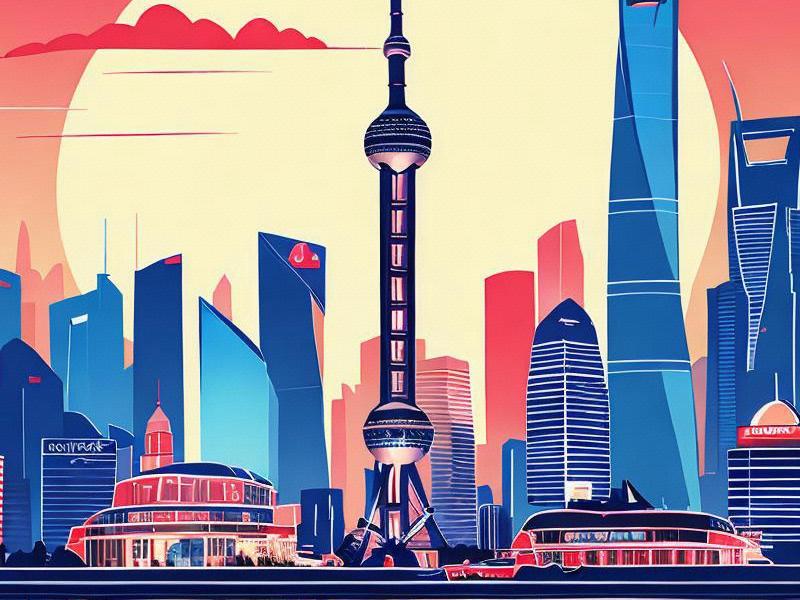
Shanghai, known as the "Paris of the East," has always been a city that never sleeps. Its rich history and rapid modernization have created a unique blend of traditional and contemporary culture. In recent years, the city's entertainment industry has flourished, with nightlife and entertainment clubs becoming a significant part of the urban lifestyle. These clubs are not just places to party; they are cultural hubs that reflect the city's dynamic spirit and its residents' aspirations for a vibrant social life.
The entertainment club scene in Shanghai has evolved significantly over the past decade. Once dominated by traditional karaoke bars and tea houses, the city has seen a surge in high-end clubs, live music venues, and themed bars. This transformation is part of a broader trend in China, where the younger generation is increasingly drawn to Western-style nightlife experiences. Shanghai, with its cosmopolitan atmosphere and international appeal, has become a leader in this movement.
One of the key factors behind the success of Shanghai's entertainment clubs is the city's economic prosperity. As one of the world's largest and most dynamic economies, Shanghai attracts a significant influx of business travelers, expatriates, and tourists. These visitors contribute to the demand for a diverse range of entertainment options, from upscale lounges to underground music venues. The city's affluent residents also play a crucial role in driving the nightlife economy, with many seeking exclusive and sophisticated experiences.
The cultural significance of Shanghai's entertainment clubs cannot be overstated. These venues serve as spaces where people from different backgrounds and social strata come together to celebrate life, music, and art. They are melting pots of creativity and innovation, offering a platform for local artists, DJs, and performers to showcase their talents. The clubs also host a variety of events, including fashion shows, art exhibitions, and charity fundraisers, further enriching the cultural fabric of the city.
爱上海最新论坛 The rise of Shanghai's entertainment clubs is also closely tied to the city's real estate market. Many of the most popular clubs are located in prime locations, such as the Bund, Lujiazui, and Jing'an Temple. These areas are not only aesthetically pleasing but also easily accessible by public transportation, making them ideal for nightlife enthusiasts. The high demand for prime real estate has led to the development of luxury mixed-use buildings that combine residential, commercial, and entertainment spaces, creating vibrant 24-hour neighborhoods.
Technology has also played a pivotal role in shaping the entertainment club scene in Shanghai. The widespread use of smartphones and social media has revolutionized the way people discover and experience nightlife. Apps like Douban and Dianping allow users to read reviews, check out event schedules, and even book tables at popular clubs. Social media platforms such as Instagram and WeChat are used to share photos and videos, creating a sense of community and buzz around the city's nightlife.
The government's support for the entertainment industry has further fueled the growth of Shanghai's nightlife. In recent years, the municipal government has implemented various initiatives to promote cultural tourism and enhance the city's international profile. These include the establishment of cultural and creative industries zones, the organization of major music festivals, and the introduction of policies to attract foreign talent and investment.
上海龙凤419油压论坛 Despite the many advantages, Shanghai's entertainment club scene faces several challenges. One of the main issues is the lack of regulation, which has led to concerns about safety, hygiene, and noise pollution. The rapid proliferation of clubs has sometimes outpaced the development of adequate infrastructure and enforcement mechanisms. Additionally, the high cost of operating a club in Shanghai, coupled with intense competition, can make it difficult for smaller venues to survive.
Another challenge is the changing preferences of the younger generation. As Shanghai's youth becomes more globalized and discerning, they are seeking unique and authentic experiences that go beyond the traditional clubbing scene. This has led to the emergence of alternative venues, such as speakeasies, live music bars, and immersive art spaces, which offer a fresh take on nightlife.
The impact of the COVID-19 pandemic has also been significant. The lockdowns and restrictions imposed during the pandemic forced many clubs to close temporarily, leading to financial losses and job cuts. However, the industry has shown remarkable resilience, with many venues adapting to the new normal by implementing health and safety measures, offering outdoor seating, and embracing digital platforms to engage with their audience.
上海龙凤419官网 Looking ahead, the future of Shanghai's entertainment club scene appears promising. The city's ongoing urban development projects, such as the construction of the Xujiahui Cultural and Entertainment Zone and the expansion of the Pudong International Airport, are expected to crteeanew opportunities for the nightlife industry. The growing popularity of experiential tourism and the increasing interest in cultural and creative industries are likely to further boost demand for diverse and high-quality entertainment options.
In conclusion, Shanghai's entertainment clubs are a testament to the city's dynamic spirit and its residents' passion for life. They reflect the evolving tastes and aspirations of a generation that values creativity, innovation, and connection. As Shanghai continues to grow and transform, its nightlife scene will undoubtedly remain a vibrant and essential part of its cultural identity.
